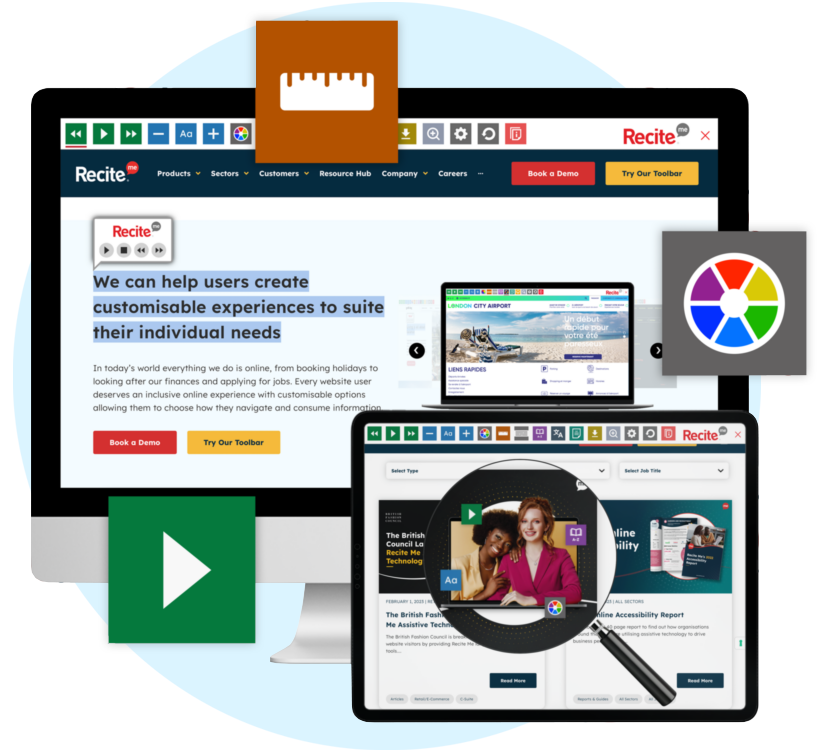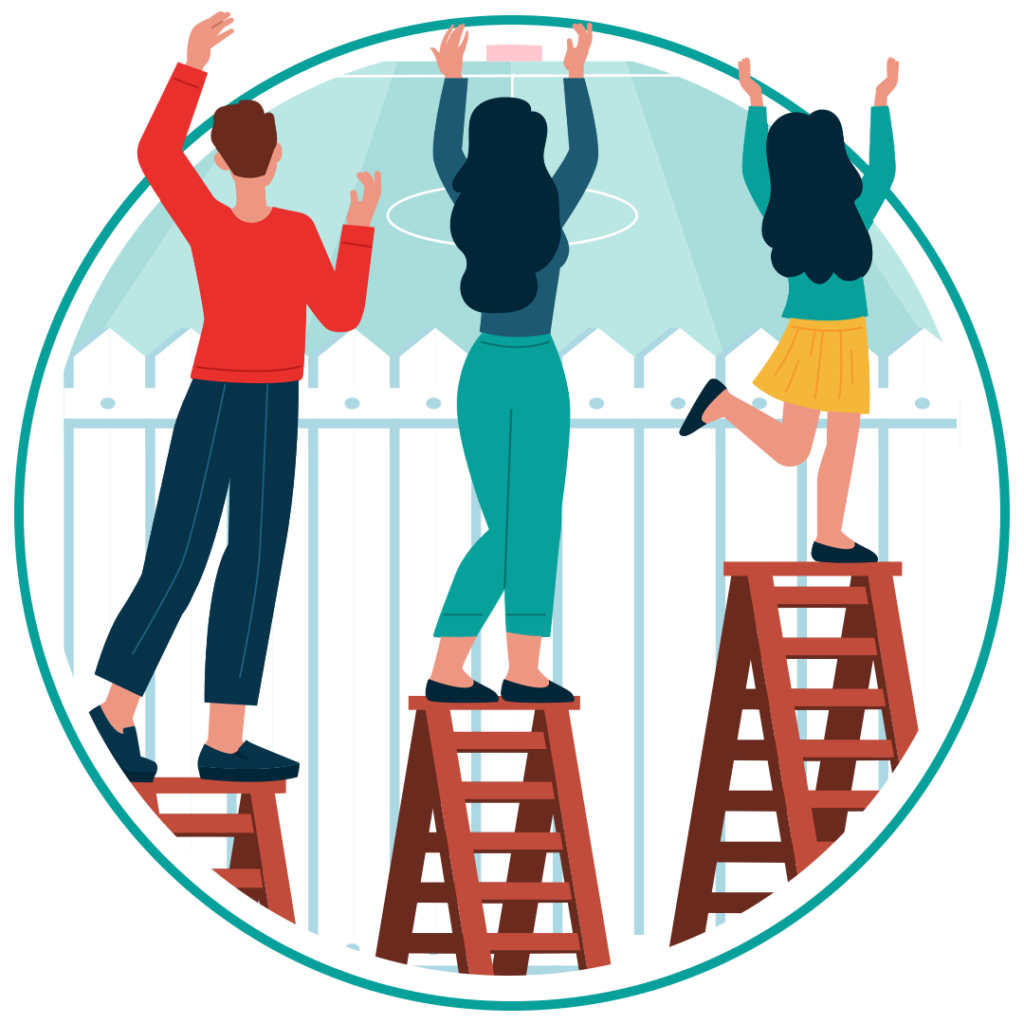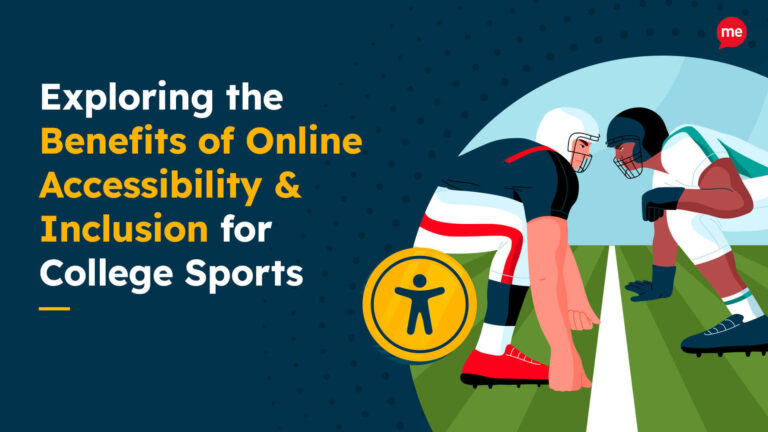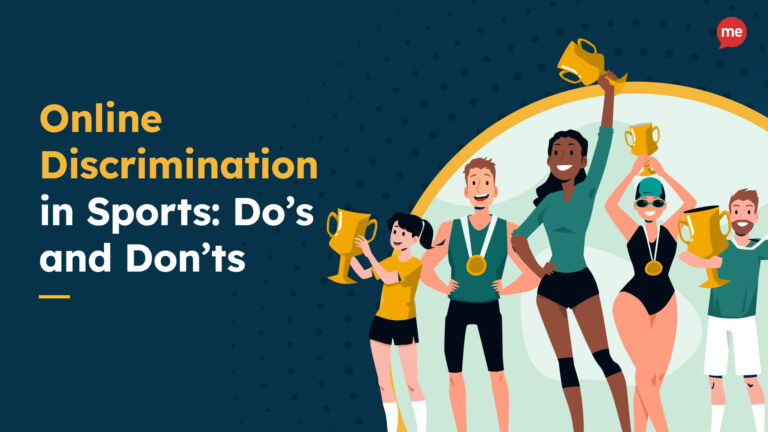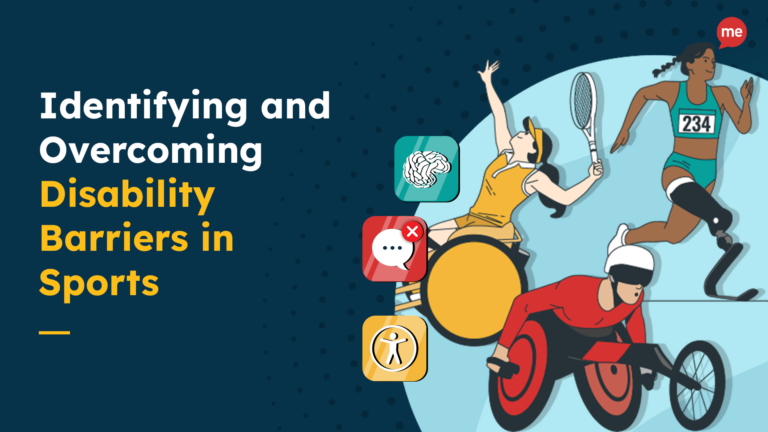Get Your Free Accessibility & Inclusion Toolkit
Download NowIn almost every corner of the world you’ll find sports taking place at some level, whether that be through spectating or taking part. Across the sporting world we are lucky to see such a diverse array of athletes, from a range of different backgrounds and abilities. Sports is something everyone should have the ability to take part in and enjoy regardless of their gender, age, race or physical disability/ability. Equality and Equity are two key principles that have helped move these values to the forefront. Additionally, the introduction of different policies and events such as the Paralympics are helping to push towards a more equal playing field in sports. Although, there is still much more work to be done.
What is Equality in Sport?
Equality in sport refers to the fair and just treatment of all individuals, regardless of their gender, race, ethnicity, sexual orientation, ability, or any other characteristic. It encompasses the idea that everyone should have equal opportunities, access, and treatment within the sporting environment. Achieving equality in sports involves addressing and eliminating discrimination, bias, and barriers that may prevent certain individuals or groups from fully participating in and enjoying sports.
What is Equity in Sport?
Equity in sport refers to the fair and just distribution of resources, opportunities, and benefits within the sports environment, regardless of an individual’s gender, race, ethnicity, socioeconomic background, or other characteristics. It aims to ensure that everyone has equal access to and participation in sports, as well as equal opportunities to excel and succeed.
Equity in sport is essential not only for ethical reasons but also for maximising the potential of sports by tapping into a diverse range of talents and perspectives. It contributes to building a more inclusive and socially responsible sporting community.
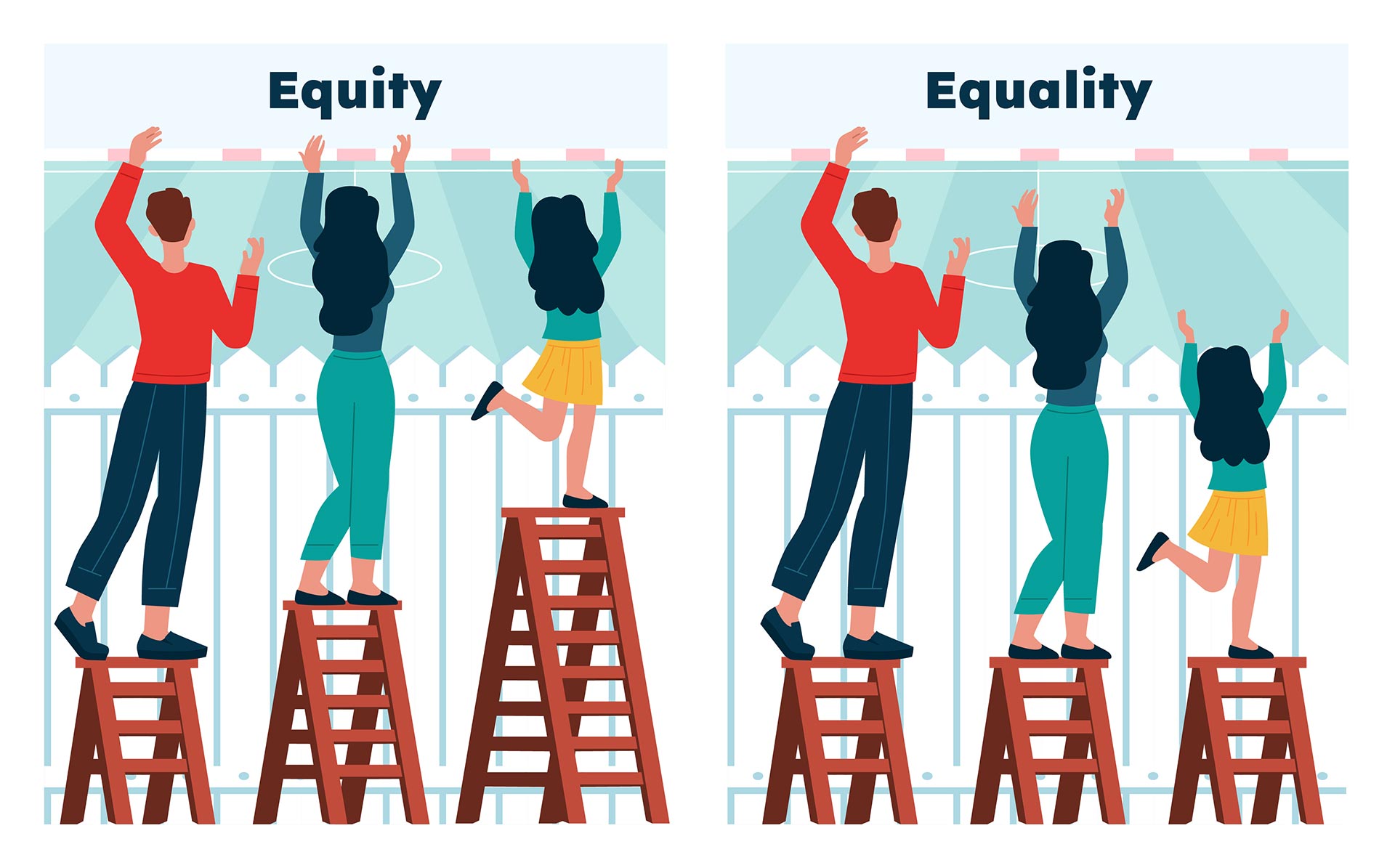
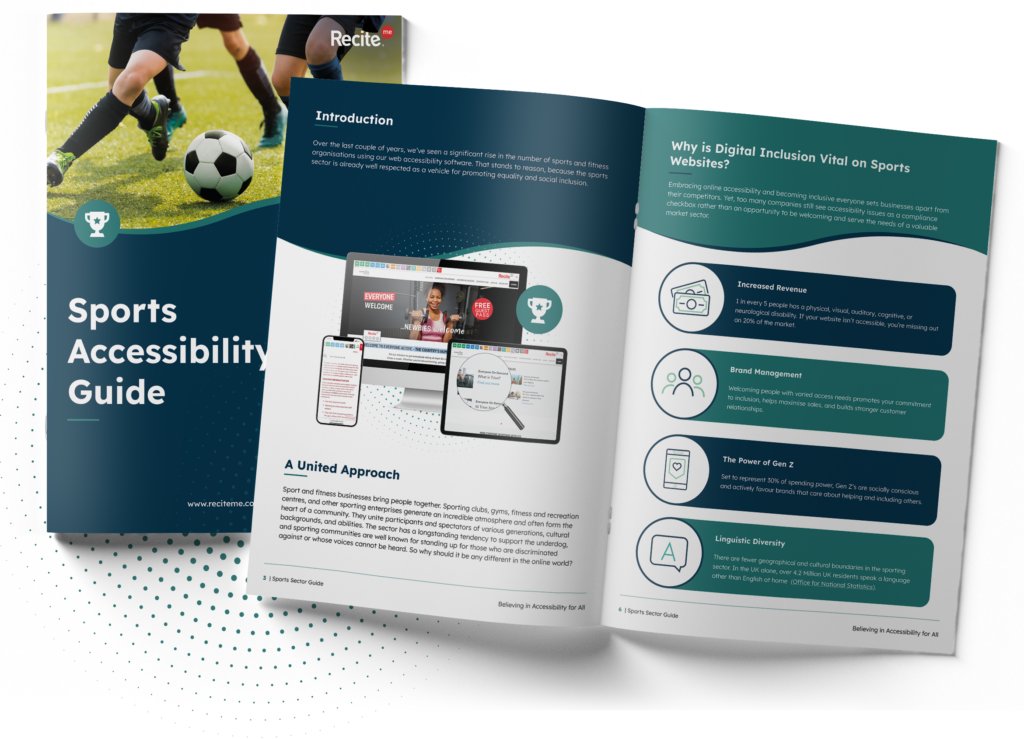
Download our Sports Accessibility Guide
Read more on why website accessibility is important to sports businesses, who needs support online, the type of access barriers users face, our top tips for an inclusive sporting website.
Real World examples of Equality and Equity in Sports
There are a number of different real-world examples that help to promote equality and equity in sports. With a variety of different initiatives that have been put in place to help break down inaccessible barriers, challenge stereotypes and discrimination in sports, and create a more inclusive environment. Some of these initiatives can be seen below
Equal Pay in Tennis
In the world of tennis, there has been a significant push for gender equality in terms of prize money. Grand Slam tournaments such as Wimbledon and the US Open have made strides towards equalising prize money for male and female players. This move acknowledges that both men and women put in the same amount of effort, skill, and dedication into their sport. For instance, Wimbledon announced in 2007 that they would offer equal prize money to male and female players, setting an example for other major tournaments to follow suit. This not only promotes fairness but also sends a powerful message about valuing athletes regardless of gender.
Creating Accessible Online Environments
When people think of sport, they often immediately think of the physical aspect of sporting participation and attending sporting events. However, much of the lead up to this involves interaction with the online world, of which many disabled people struggle with.
For example, an individual wanting to book tickets for a football game, would likely need to make a purchase online or find out more information from the company website. But, disabled people often face barriers with inaccessible websites. Sports organisations such as the American Baseball Coaches Association have implemented the Recite Me toolbar to help address some of these issues and enhance the inclusivity of their website.
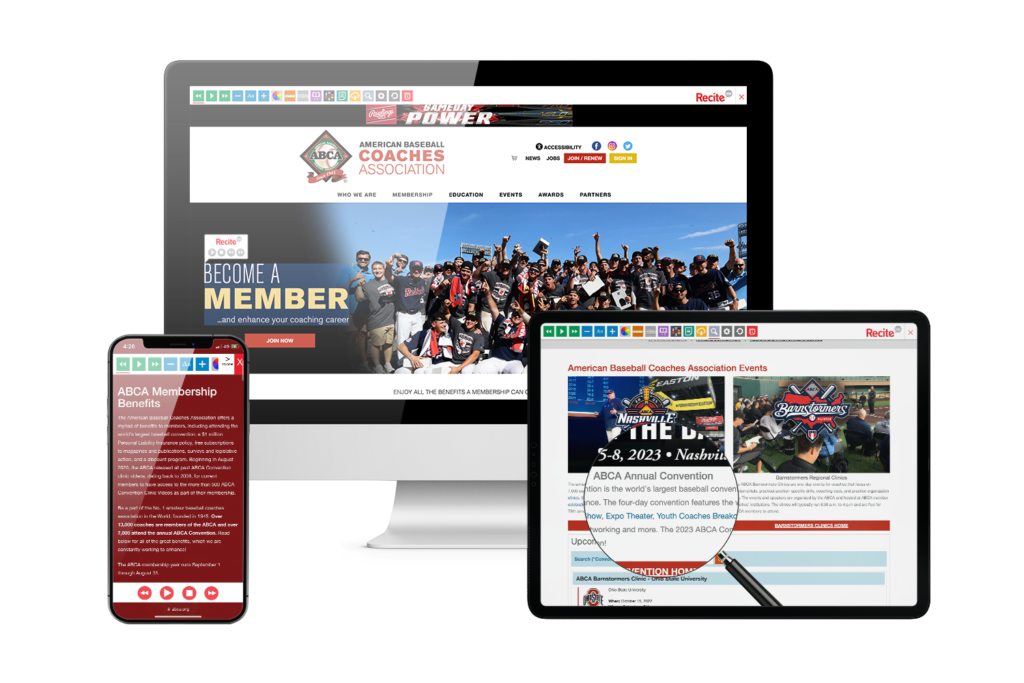
Paralympics
The Paralympics was a huge moment for disabled sports enthusiasts around the world. The Paralympic Games promotes equality by providing a platform for athletes with disabilities to showcase their talents on the global stage. This event runs parallel to the Olympic Games and features a wide range of sports adapted for athletes with impairments. The inclusion of Paralympic Games emphasises that individuals with disabilities in sport deserve the same opportunities and recognition as able-bodied athletes. This commitment to inclusivity has helped shift societal perceptions of disability and has contributed to breaking down disability barriers in the world of sports.
Athlete Mental Health Support
In recent years, there has been a growing awareness of the mental health challenges faced by athletes. Sporting organisations and institutions are taking steps to provide equitable mental health support for athletes. This includes access to counselling services, mental health resources, and destigmatising discussions around mental well-being. Recognising that mental health is as important as physical health, these initiatives aim to ensure that all athletes, regardless of their background or status, have equal access to the necessary support systems to navigate the pressures and challenges of competitive sports.
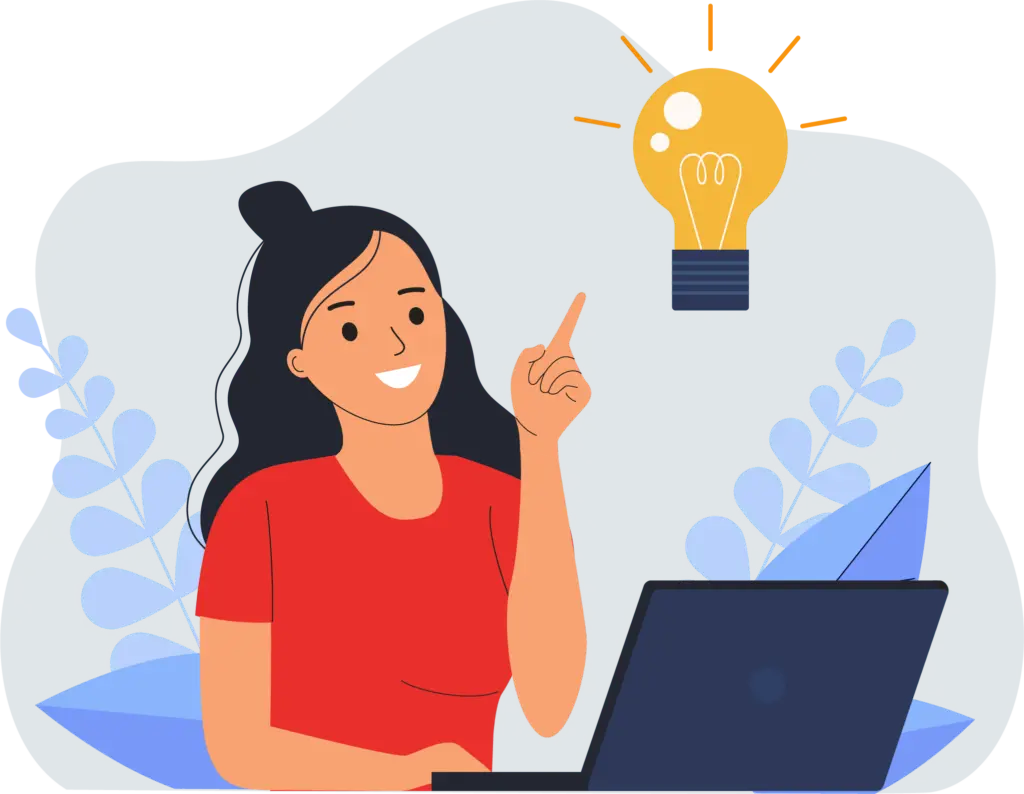
The Importance of Equality of Access
Equality of access in sports is crucial for fostering a fair and inclusive environment that allows individuals of all backgrounds to participate and excel. Here are some key reasons highlighting the importance of equality of access in sports:
- Fair Competition: Sports are built on the principles of fair competition, and equal access ensures a level playing field. When everyone has the same opportunities to participate, it creates a fair competition where success is determined by skill, effort, and dedication rather than external factors.
- Inclusivity and Diversity: Equality of access ensures that people from diverse backgrounds, regardless of their race, gender, socio-economic status, or physical abilities, have the opportunity to engage in sports. This fosters inclusivity, breaks down barriers, and promotes a sense of belonging within the sporting community. You can learn more about diversity and inclusion in sports here.
- Health and Well-being: Physical activity is essential for maintaining good health and well-being. Equality of access in sport encourages a broader range of individuals to engage in regular physical activity, promoting healthier lifestyles and reducing the risk of various health issues.
- Social Development: Sport plays a significant role in the social development of individuals. By providing equal access, sports become a platform for social interaction, teamwork, and the development of valuable life skills such as communication, leadership, and discipline. Furthermore, it can bring entire communities together, helping to create shared experiences and celebrations.
- Economic Opportunities: Equality of access can lead to increased economic opportunities in sports. When diverse individuals have the chance to participate at all levels, it opens up avenues for careers, sponsorships, and business ventures within the sports industry. Some of the most financially successful sports people have come from low income or undeveloped countries, including the likes of LeBron James, Mike Tyson and Cristiano Ronaldo.
Our 40-page Digital Accessibility & Inclusion Toolkit helps businesses break down online barriers and make a real impact. It offers practical advice on all aspects of digital accessibility, from writing an accessibility statement to accessible website tips and inclusive hiring.
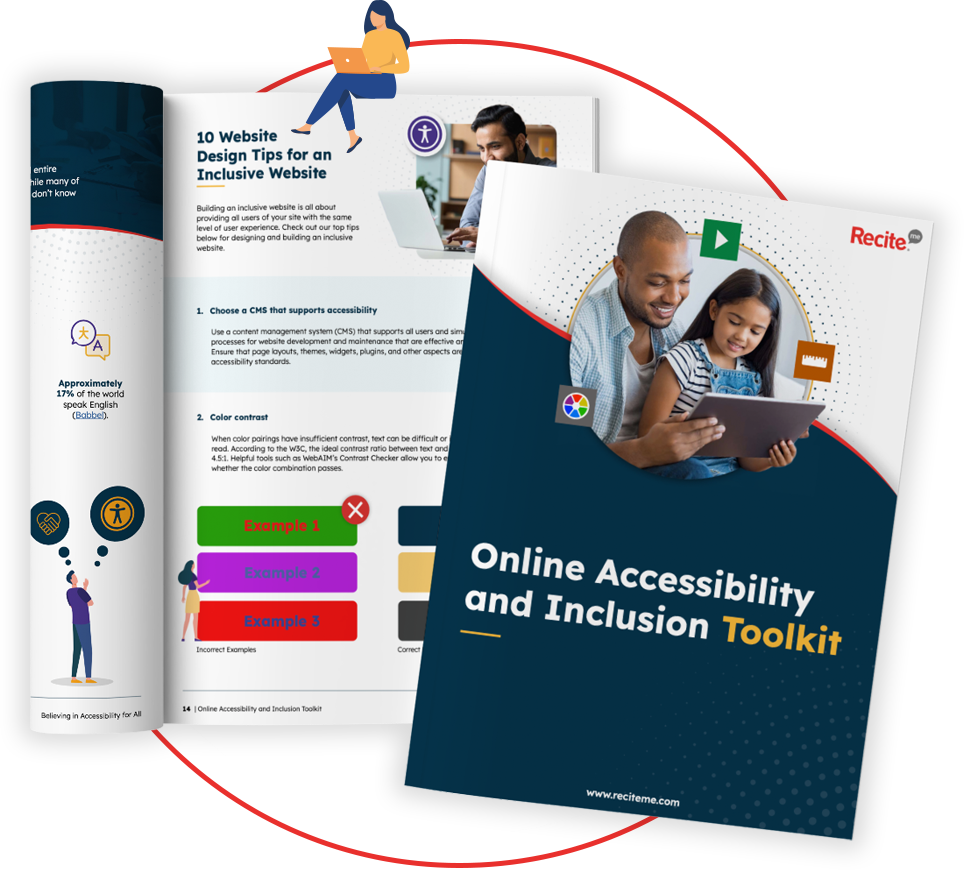
How can Recite Me help?
Recite me is one of the leading providers of digital accessibility software. With a range of different accessibility solutions and tools, helping to create more inclusive online environments. As we look to get even more involved in the sports sector, here is how we can help.
Accessibility Toolbar
The Recite Me Accessibility Toolbar is one way we are trying to enhance equal access across the web. With the digitalisation of the world we live in, the importance of online access is ever-growing, even in the sporting world. As participants and spectators are often forced into online interactions, whether it be signing up to events, purchasing tickets, ordering sporting equipment or anything else. The Toolbar provides a fully customisable experience for website visitors, enabling them with the following features and options:
- Personalising font size, type, and colour options.
- Choosing the exact colour contrast between the text and background.
- Utilising the mask screen tool to help with focus.
- Using the ruler tool to make reading easier.
- Downloading content as an audio file as an alternative to reading.
- Converting page content into over 100 on-screen languages.
- Having the page read aloud in a choice of 65 languages.
- Customising PDF documents or having them read aloud/ translated.
- Zooming in on any part of a webpage.
- Using the built-in spell-checker and a fully integrated dictionary and thesaurus.
Interested to learn more about the tool? Book a free demonstration with a Recite Me accessibility expert.
